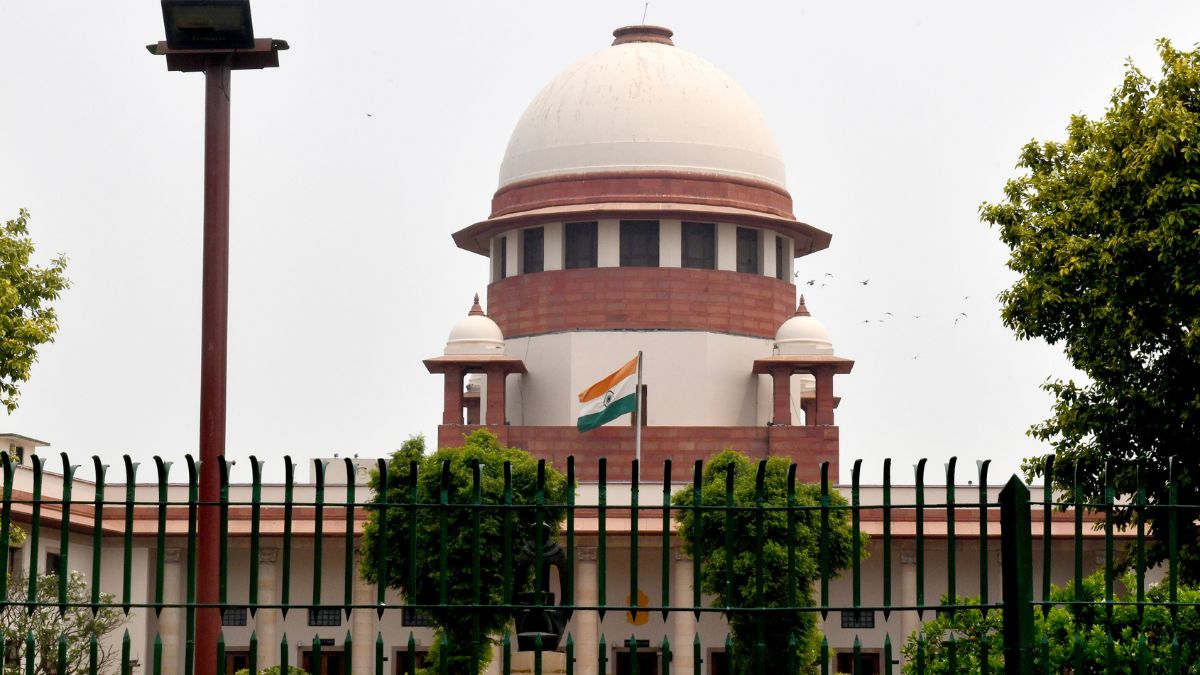- By Mayukh Debnath
- Mon, 04 Mar 2024 05:54 PM (IST)
- Source:JND
Vote-For-Bribe Case: The Supreme Court on Monday overturned its 1998 majority judgment in the PV Narasimha Rao case, ruling that an MP or MLA cannot claim immunity from prosecution for accepting bribes to vote or make a speech in a particular way in the Parliament or state legislature. The landmark verdict was passed by a seven-member Constitution bench headed by Chief Justice of India (CJI) DY Chandrachud.
"We disagree with the judgment in PV Narasimha case which grants immunity to legislator for alleged bribery for making a speech or vote in a particular manner in the House that has wide ramifications," CJI Chandrachud observed during the hearing. The top court held that corruption and bribery by legislators destroy the functioning of Indian Parliamentary democracy. The bench observed that bribery is not rendered immunity under Article 105 or 194 of the Constitution.
"A member indulging in bribery indulges in a criminal act which is not essential for casting a vote or giving a speech in the legislature," CJI Chandrachud said while reading out the operative part of the verdict. The hearing pertained to a PIL filed by Jharkhand Mukti Morcha (JMM) leader Sita Soren. She had moved the apex court in September 2014 after the Jharkhand High Court declined to quash criminal proceedings against her in connection with the 2012 Rajya Sabha election to two seats from the state.
Sita Soren's Plea
Sita Soren was accused of accepting a bribe from an Independent candidate in the 2012 Rajya Sabha polls for voting in his favour. She had claimed that she had voted for her own party's candidate. In fresh polling held later, she voted in favour of the JMM's candidate. Sita Soren subsequently approached Jharkhand HC seeking quashing of criminal prosecution against her on the grounds of immunity under Article 194(2) of the Constitution of India.
PV Narasimha Rao Case
In her plea before Jharkhand HC, Sita Soren had referred to the Supreme Court's 1998 verdict in the PV Narasimha Rao case in her defence. In 1998, while hearing a case against four JMM MPs who had allegedly accepted bribes in exchange for their support during a no-confidence motion against erstwhile Prime Minister PV Narasimha Rao's minority government in 1993, the apex court reached the conclusion that the scope of Article 105(2) extended to the defendants in the case.
Re-Examining Of PV Narasimha Rao Verdict
The plea filed by Sita Soren before the Supreme Court was originally assigned to a two-judge bench, which then referred the matter to a three-judge bench considering that the issue was "substantial and of general public importance". On March 7, 2019, the three-judge bench in turn referred the matter to a larger bench. The matter was ultimately assigned to the seven-member SC bench that delivered its verdict on Monday (March 4, 2024).
On September 20 last year, the top court decided to re-examine its 1998 judgment in the PV Narasimha Rao case. During the hearing on that day, CJI Chandrachud observed that the purpose of Article 105(2) and Article 194(2) is to ensure that members of parliament and of state legislatures are able to discharge duties in an atmosphere of freedom without fear of any consequences.
What Article 105(2) Says?
Article 105(2) of the Constitution states, "No member of Parliament shall be liable to any proceedings in any court in respect of anything said or any vote given by him in Parliament or any committee thereof, and no person shall be so liable in respect of the publication by or under the authority of either House of Parliament of any report, paper, votes or proceedings."
(With inputs from ANI)
